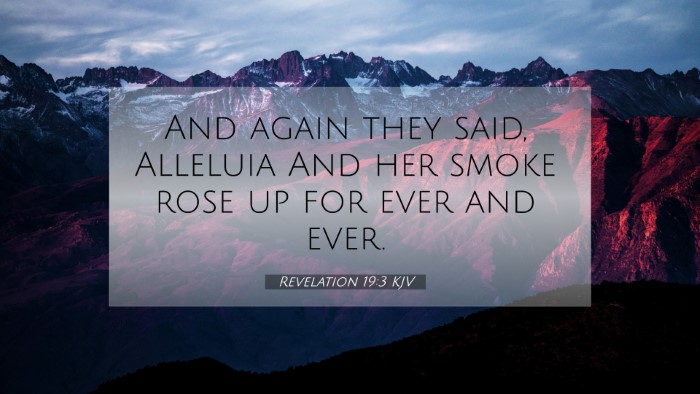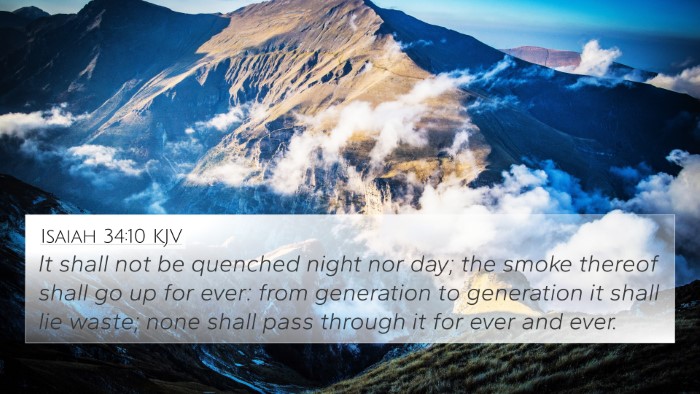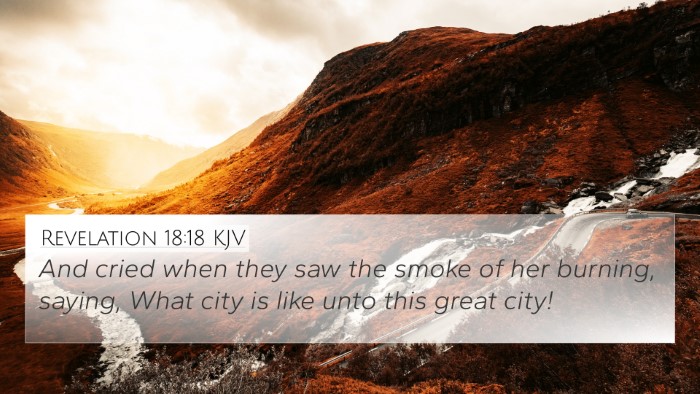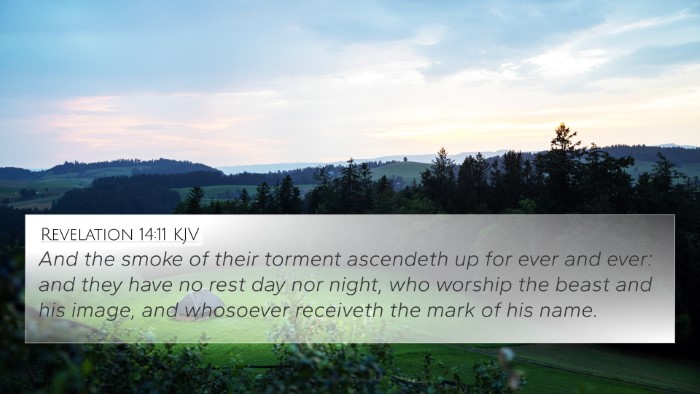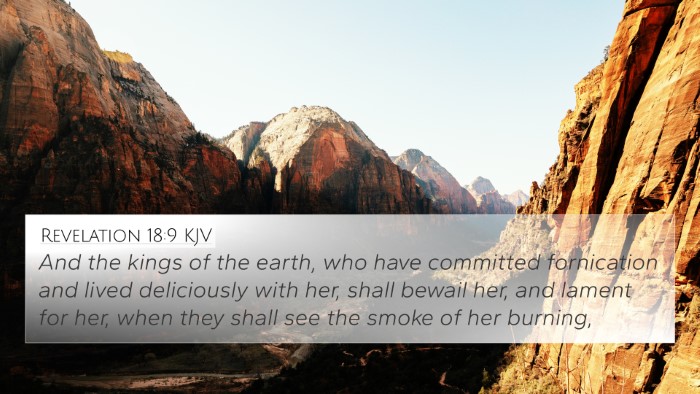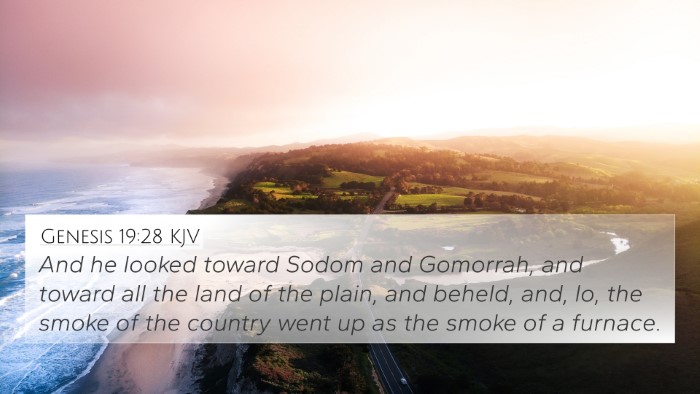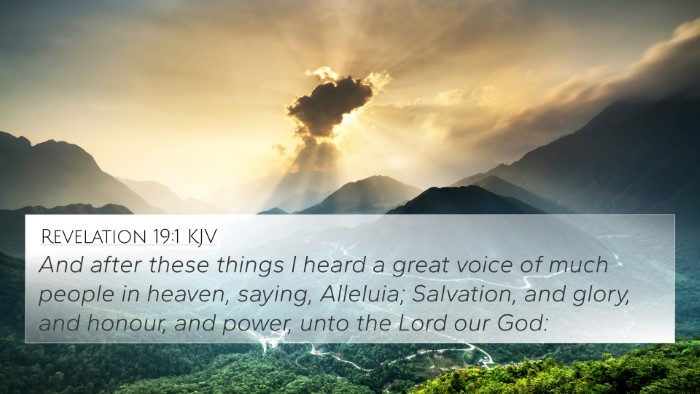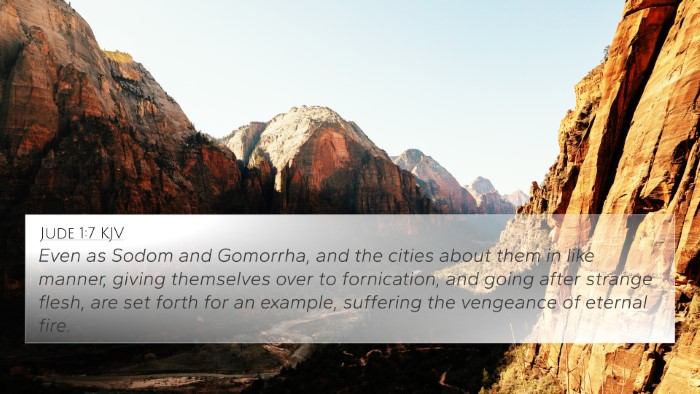Understanding Revelation 19:3
Revelation 19:3 states: "And again they said, Alleluia. And her smoke rose up for ever and ever." This verse appears within the context of the celebration of God’s judgment and the ultimate victory of good over evil.
To provide a comprehensive understanding of this verse, we draw insights from several public domain commentaries including Matthew Henry, Albert Barnes, and Adam Clarke, revealing its thematic significance and connections to other scripture.
Verse Meaning and Context
The surrounding context of Revelation 19 details the rejoicing in heaven following the fall of Babylon, symbolizing the end of wickedness and false religious systems.
- Matthew Henry's Commentary: Henry emphasizes the significance of the rejoicing in heaven, correlating it with the consummation of God's judgment against the great harlot, Babylon. He highlights the eternal nature of this judgment reflected in the phrase "her smoke rose up for ever and ever," signifying the everlasting destruction of evil.
- Albert Barnes' Notes: Barnes interprets the call of the heavenly hosts to praise God, showcasing the assurance of divine justice. He points out that the continuous affirmation "Alleluia" expresses supreme praise and acknowledges God's enduring sovereignty over creation.
- Adam Clarke's Commentary: Clarke reflects on the imagery of smoke as a representation of divine wrath. He argues that the eternal nature of the smoke symbolizes the finality and completeness of God's judgment against sin, serving as a reminder of the consequences of leading a life opposed to divine will.
Thematic Connections
Revelation 19:3 connects deeply with themes of judgment, redemption, and divine justice found throughout the Bible.
Cross References
- Revelation 14:10: This verse speaks of the consequences for those who worship the beast, resonating with the judgment proclaimed in 19:3.
- Isaiah 34:10: Isaiah's prophetic declarations about the eternal desolation of Edom reflect the same judgmental imagery of smoke.
- 2 Thessalonians 1:9: Here, apostolic teachings emphasize the coming judgment for those who do not know God, echoing the themes of continuous punishment.
- Matthew 25:41: This verse highlights the eternal punishment prepared for the devil and his angels, reinforcing the permanence of divine retribution seen in Revelation 19:3.
- Hebrews 10:27: The expectation of fiery judgment aligns with the symbolism of smoke representing God's wrath towards sin.
- Psalm 37:20: This psalm discusses the fate of the wicked, again resonating with the everlasting destruction of evil depicted in Revelation.
- Romans 2:8-9: Paul speaks of wrath for those who obey unrighteousness, paralleling the themes of judgment found in Revelation 19:3.
Comparative Bible Verse Analysis
The analysis of similar verses reveals a consistent biblical narrative about the reality of sin and judgment. Through comparing Revelation 19:3 with these foundational texts, readers can gain deeper insights into the nature of God’s justice.
Conclusion
The rich thematic elements in Revelation 19:3 prompt any reader to reflect on God's righteousness and the stark dichotomy between good and evil. By examining this verse alongside other relevant scriptures, one grasps the seriousness of divine judgment and the eternal nature of consequences for moral choices.
Tools for Further Study
For those interested in diving deeper into Bible study and understanding connections between Bible verses, consider utilizing:
- Bible Concordance: A tool for finding verses based on keywords.
- Bible Cross-Reference Guide: Reference materials that connect themes and contexts across scriptures.
- Cross-Reference Bible Study: Methods for finding interconnections among biblical texts.
Fun Fact
The word "Alleluia," used in Revelation 19:3, is an expression of praise that is found throughout the Bible, particularly in the Psalms, symbolizing deep gratitude and adoration towards God.


